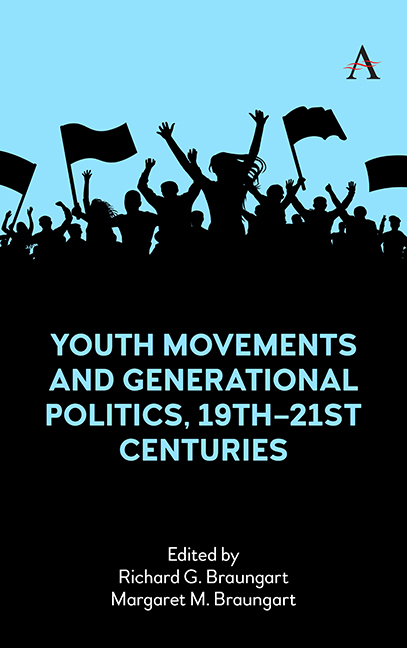15 - Generational Conflict and Intergroup Relations as the Foundation for Political Generations
Published online by Cambridge University Press: 18 November 2023
Summary
Political generations occur when age groups divide and conflict over politics, and are seen as resulting from the interaction between life-course, cohort/generational, and period effects. In this essay, political generations are examined both from a macro generational conflict interpretation, based largely on Mannheim's theory, as well as from a more micro intergroup relations approach, as developed by the Sherifs. It is argued that generational conflict and intergroup relations provide different yet complementary perspectives in the study of political generations. After briefly reviewing the literature on generational conflict and intergroup relations, these two approaches are illustrated by drawing examples from political generations in history. Finally, a comparative framework is offered that outlines the key concepts in the relationship between generational conflict, intergroup relations, and political generations.
Political Generations
A political generation occurs when an age group mobilizes to work for social and political change—or, to paraphrase Spitzer (1973), when age correlates with collective political behavior. Age is, of course, one of the most fundamental social categories in all societies, providing the basis for prescribing normative behavior and granting status, privilege, and power, with the relations between age groups having much to do with societal stability and change (Bengtson, Cutler, Mangen, and Marshall 1985; Mannheim 1952; Riley 1978; Ryder 1965; Streib and Bourg 1984). Young people as they come of age develop a fresh awareness of the larger social and political world, while the adults’ role is to socialize and integrate youth into society as responsible citizens. During so-called routine periods, the socialization of youth proceeds without major incident, but every so often, youth perceive themselves as a distinct age group whose politics differ markedly from adults. Rejecting the social and political world of their elders, young people may form a political generation whose mission is to redirect the course of politics and history (Braungart 1984a, 1984b, 1984c; Esler 1971, 1982; Heberle 1951; Rintala 1974).
The most recent period of political generational activity occurred in the 1960s.
- Type
- Chapter
- Information
- Youth Movements and Generational Politics, 19th-21st Centuries , pp. 385 - 406Publisher: Anthem PressPrint publication year: 2023



